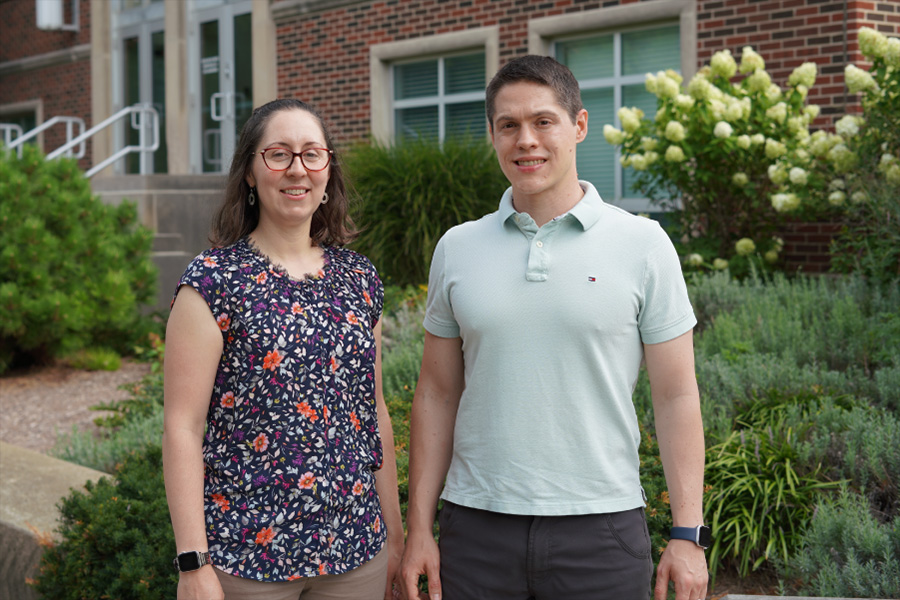Purdue ECE’s Jamie Davis awarded NSF grant to study software engineering in the age of Generative AI

James C. Davis, an assistant professor in Purdue University’s Elmore Family School of Electrical and Computer Engineering, is co-leading a National Science Foundation-funded project that aims to transform how software engineers are prepared for the era of Generative Artificial Intelligence (GenAI).
Davis and his wife and research partner, Kirsten Davis, an assistant professor in Purdue’s School of Engineering Education, have received a $350,000 NSF grant to launch the three-year study in January 2026. The project, supported through NSF’s Research in the Formation of Engineers program, will investigate what it means to be competent in prompt engineering—the ability to effectively interact with GenAI tools such as ChatGPT during software development.
“I’m really excited to keep working with scholars in Engineering Education to train the best software engineers on the market,” said James Davis. “This grant gives us a unique opportunity to partner between Purdue’s world-class ECE program and its world-class Engineering Education research.”
The study will analyze how professional engineers interact with GenAI systems and identify the knowledge, skills and dispositions that make prompt engineering effective. The research team will then translate these findings into educational materials and training resources for both undergraduate students and the current workforce.
Key activities include:
- Analyzing real-world datasets of software prompts using a hybrid coding approach.
- Conducting a Delphi study with software engineering leaders, educators and practitioners to refine the emerging framework.
- Designing learning modules and rubrics to guide instruction and training.
The project draws on Socratic Questioning and the Goals-Operators-Methods-Selection Rules (GOMS) framework to build a theory-informed model of prompt engineering competency. In addition, the team will interview and survey industry professionals to capture how GenAI is being used in practice across different roles and sectors.
The anticipated outcomes include a prompt engineering competency framework with supporting instructional materials, new workforce development resources, stronger academia-industry partnerships, and long-term contributions to U.S. economic competitiveness through GenAI-enabled productivity.
The NSF selected the project for funding based on its intellectual merit and broader societal impacts, two central pillars of the Foundation’s review criteria.
